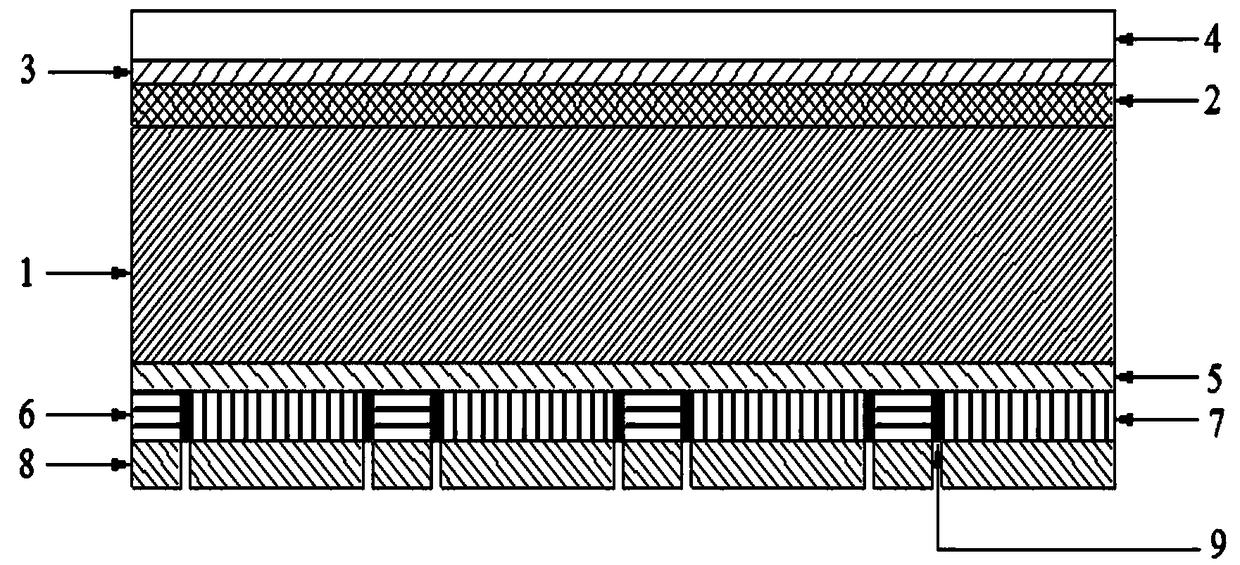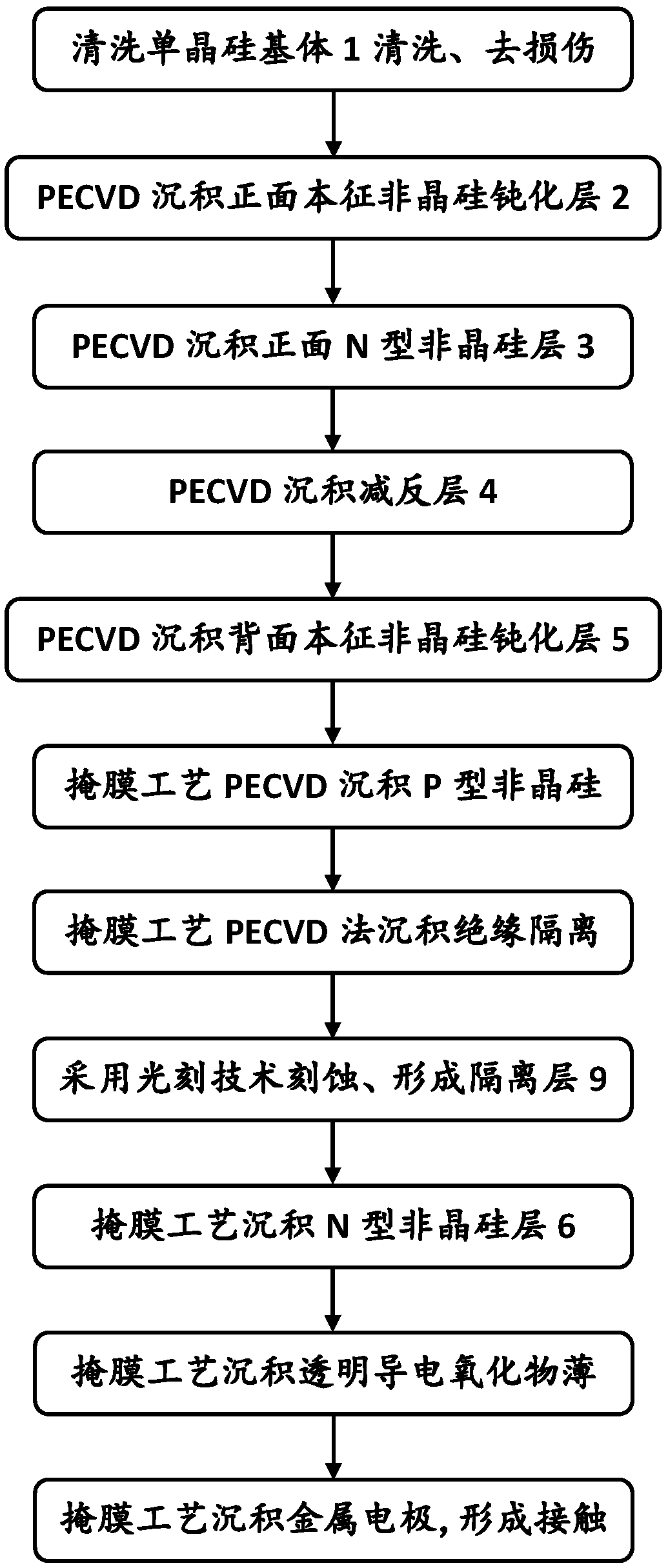A preparation method of a back-contact heterojunction solar cell
A solar cell and heterojunction technology, applied in the field of solar cells, can solve the problems of reduced short-circuit current density, reduced carrier collection efficiency, reduced area, etc., to reduce the number of photolithography, reduce process complexity, and reduce small width effect
- Summary
- Abstract
- Description
- Claims
- Application Information
AI Technical Summary
Problems solved by technology
Method used
Image
Examples
Embodiment Construction
[0032] The technical solutions in the embodiments of the present invention will be clearly and completely described below in conjunction with the accompanying drawings in the embodiments of the present invention.
[0033] Such as figure 1 As shown, a back-contact heterojunction solar cell, taking N-type silicon as an example, includes an N-type monocrystalline silicon substrate 1, a front intrinsic amorphous silicon passivation layer 2, and a front N-type amorphous silicon layer 3. An anti-reflection layer 4, an intrinsic amorphous silicon passivation layer 5 on the back, an N-type amorphous silicon layer 6 on the back, a P-type amorphous silicon layer 7, a contact layer 8, and an insulating isolation layer 9.
[0034] combine figure 2 The schematic diagram of the preparation method for the back of the interdigitated back-contact heterojunction solar cell is shown, and the specific implementation of the present invention is described as follows.
[0035] (a) Cleaning the mo...
PUM
| Property | Measurement | Unit |
|---|---|---|
| width | aaaaa | aaaaa |
| thickness | aaaaa | aaaaa |
| thickness | aaaaa | aaaaa |
Abstract
Description
Claims
Application Information
 Login to View More
Login to View More - R&D
- Intellectual Property
- Life Sciences
- Materials
- Tech Scout
- Unparalleled Data Quality
- Higher Quality Content
- 60% Fewer Hallucinations
Browse by: Latest US Patents, China's latest patents, Technical Efficacy Thesaurus, Application Domain, Technology Topic, Popular Technical Reports.
© 2025 PatSnap. All rights reserved.Legal|Privacy policy|Modern Slavery Act Transparency Statement|Sitemap|About US| Contact US: help@patsnap.com


